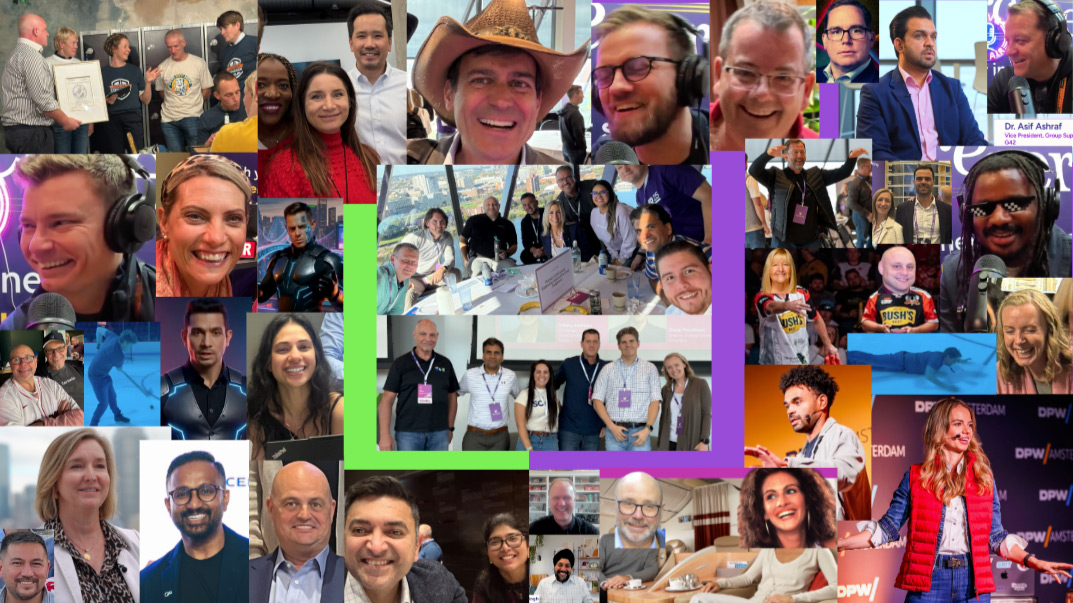Procurement leader spotlight with Rendi Miller
Next up in our Procurement Leader Spotlight blog series, we spoke with Rendi Miller to talk about how she has climbed the ranks from a Buyer to VP, the importance of building trust with your suppliers, building a procurement department from the ground up, and how to succeed in the function.
Rendi Miller has over twenty years of experience in leadership roles across procurement and strategic sourcing. She is the Founder of Silicon Valley Sourcing Leaders, a professional network of strategic sourcing and procurement leaders dedicated to elevating the profession through knowledge sharing and collaboration. Currently, Miller is the Vice President of Strategic Sourcing and Procurement at Zendesk.
Q: Can you tell us about your background and how you got into procurement? How did you get to where you are today?
A: I did not intend to get into procurement and I didn't really even know what the word meant. I was a single mom with three kids and I took a job as an executive assistant at Seagate Technology supporting the Vice President of Indirect Materials. I quickly learned that I wanted to do more than “assist.”
There, I gained an understanding of the corporate world and the different aspects of Procurement. At that time, we had buyers, purchasing operations, commodity managers, and I became familiar with the world of procurement. As soon as a buyer position opened up, I raised my hand and said, “I want to do that.”
So, that was really how I got into procurement. I worked at Seagate for 13 years and grew my career from a buyer to a senior commodity manager. I started at the very bottom in a very well-run manufacturing company, and learned all the elements of procurement and strategic sourcing which gave me a great foundation.
I left Seagate and joined Splunk to build the procurement organization from the ground up. With nothing in place, I really appreciated the solid foundation that I had from Seagate that I fell back on as I began writing policies and putting processes in place.
The thing that I loved (and still love) about my job is getting to know so many different aspects of the business—it's one of the things that I really enjoy about procurement—you get to see the entire scope of the organization in some way or another.
Building an organization from the ground up was an incredible experience, a lot of fun, and I learned so many new things. Coming to Zendesk, I have expanded my scope of responsibilities and am taking my organization to the next level trying to solve problems that are not unique to us—they're really across the industry from what I hear from my colleagues and peers. We're all talking about the same thing. So, it's exciting to go to the next level here.
Q: Over the last 5-10 years, what are the most impactful changes you have seen in procurement?
A: I think one of the one of the things that has impacted procurement most in the last five years has been GDPR and risk management. Risk management was primarily focused on financial risk, particularly within SaaS companies, and GDPR was unheard of. Privacy and data protection has added a considerable amount of time to the sourcing or contracting cycle as you determine what data might be shared or accessed and the level of security provided by the vendor.
The landscape of risks in terms of data breaches and how we are protecting our employees and our customer data has risen to a highly visible level requiring us to take greater measures in evaluating suppliers and applications.
Something else that has changed in the world of procurement is how we are measuring the value of procurement. The industry as a whole is moving towards delivering value beyond cost savings, becoming trusted advisors, and partnering with the business in decision making.
I often tell my team, “Saving money is showing up for work every day.” I report on savings, but I do not measure the team against a savings target that I set. I want them to be driving towards their business partners’ goals and delivering them the best value that they can. Procurement has replaced the business owner as the quarterback for the team, calling the plays and pulling the various team members together to win the game!
Q: Where do you see the procurement industry going over the next five years?
Corporate social responsibility is growing in importance and visibility for many companies and I think we are going to start to put a lot more emphasis on our suppliers having strong social responsibility programs as well. We are going to start to factor that into some of the evaluation processes as we look into supplier selection, supplier diversity, and sustainability as we look at who we are going to select.
Q: What skills do you think the future leaders of procurement need to be successful? And what advice would you give them to get in a position like yourself? How can young buyers work their way up like you did, Rendi?
I think building relationships is really important and having good listening skills—listening to your business partners, listening to what's important to them, and helping them to drive their ideal outcomes. Also, listen to what they don’t say.
How are you thinking creatively about what they say they need or what problem they're trying to solve? What else can you bring to the table? Because procurement sees everything in the organization, we can take what we’ve learned or has worked from another business unit and apply it to help come up with a solution.Be creative. Everything does not need to follow “three bids and a buy.”
Another thing I think is really important for procurement leaders (and I often have my team do this) is partner with your sales team. Sit on a sales call and listen to what another procurement person is saying. It has been mutually beneficial for us and for our sales team to ask what tactics are both sides using. It starts to level the playing field and it allows everyone to be completely transparent and get everything out on the table.
Q: What is one thing you think that most procurement professionals aren't doing well now that they should start doing better immediately? Could you share some thoughts on how folks could start doing better immediately to improve their function?
Be more transparent with your suppliers. I’m not talking about going in and saying this is what our budget is and giving everything away. But, being transparent about what you need and building trust with your suppliers is crucial. Gone are the days of beating up your suppliers and walking away feeling like you won because we are dependent on our suppliers and we need them. Building relationships with them is equally as important as building relationships with our stakeholders.
My CIO and I partnered together to host a supplier summit. We brought in all of our tech suppliers, and basically gave them our entire roadmap and said, here's what we're doing. Here's what's changing in the IT world at Zendesk and here is what we're doing in procurement. Here's how we want to partner with you. It was wildly successful. Or suppliers were saying no one does this. No one wants to open the kimono and say here's what we need—come alongside us to be our partner. I think it's really important to partner a lot more closely with suppliers and not be iron fisted with them and keep them at arm's distance.
I also think that we are not doing a good job of solving our own problems.This goes back to the question about technology. How are we pulling all of this together to solve our own problems? Are we pushing procurement technology suppliers to give us what we need? I think that's something that is really critical in our space. I'm not sure that we're doing enough of that.





